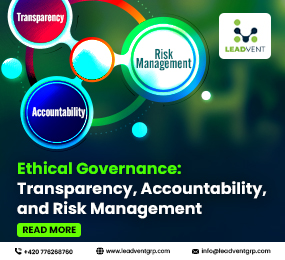Africa’s ESG and Climate Drive: Building Resilience Through Responsibility
Africa is no stranger to climate extremes scorching droughts, devastating floods, rising sea levels. But what’s often overlooked is how the continent is stepping forward with its own climate leadership, rooted in Environmental, Social, and Governance (ESG) values that reflect local realities and global aspirations.
Across regions, African governments, communities, and companies are moving beyond rhetoric. They are crafting climate strategies that don’t just check international boxes but speak directly to the needs of their people strategies that combine sustainable development with long-term social equity and transparency.
This isn’t about catching up. It’s about setting the pace in a way that prioritizes resilience, trust, and shared progress.
Environmental Leadership: Turning Vulnerability into Innovation
Africa contributes less than 4% of global greenhouse gas emissions but suffers disproportionately from climate-related impacts. In response, environmental sustainability efforts are becoming smarter and more locally driven. From Kenya’s geothermal expansion to Morocco’s solar power breakthroughs, renewable energy is gaining traction.
Rural communities are adopting climate-smart agriculture to counter unpredictable weather. Urban centers are piloting green infrastructure to reduce flood risks. And organizations are investing in reforestation, conservation, and carbon offset projects not just to protect nature, but to strengthen economies tied to it.
This wave of innovation shows that African solutions, when backed by trust and investment, can offer global lessons.
The Social Pillar: Climate Justice in Action
ESG in Africa isn’t complete without a social foundation. Here, climate action is deeply tied to human well-being. Across the continent, initiatives are focusing on access to clean energy, gender-inclusive development, youth empowerment, and food and water security.
In South Africa, solar micro-grids are powering off-grid villages. In Nigeria, startups are helping smallholder farmers adapt to erratic weather through data-driven platforms. And in Rwanda, women-led cooperatives are managing clean cookstove programs that reduce emissions and improve health outcomes.
These are not top-down mandates they’re people-first approaches, grounded in lived experience.
Governance: Trust, Accountability, and Opportunity
Effective ESG also depends on strong governance. Africa is building frameworks that promote transparency, ethical business practices, and climate risk disclosures. Many African nations are incorporating ESG into national development plans, green finance initiatives, and public-private partnerships.
Sustainability reporting is becoming more common across industries from energy to agriculture driven by investor demand and international trade requirements. But it’s also about earning community trust and delivering real outcomes, not just ticking boxes.
Takeaway Point:
Africa’s ESG and climate journey is not just about global alignment it’s about local ownership. It’s about empowering people, protecting resources, and holding institutions accountable. In doing so, the continent is crafting its own sustainable path resilient, inclusive, and built for the long haul.
Learn more on our website: https://www.leadventgrp.com/event/esg-and-climate-africa-summit/register
For more information and group participation, contact us: [email protected].
Leadvent Group - Industry Leading Events for Business Leaders!
www.leadventgrp.com | [email protected]
















